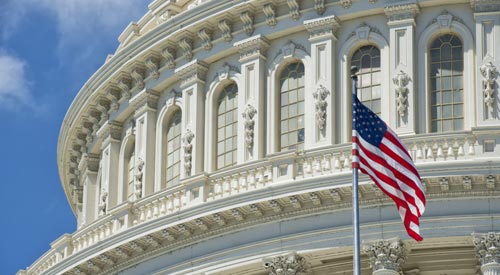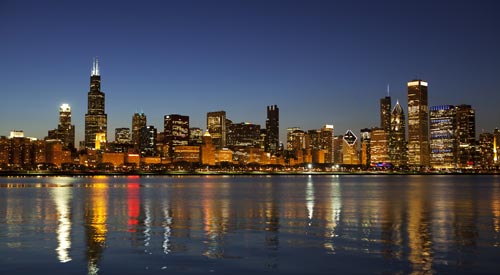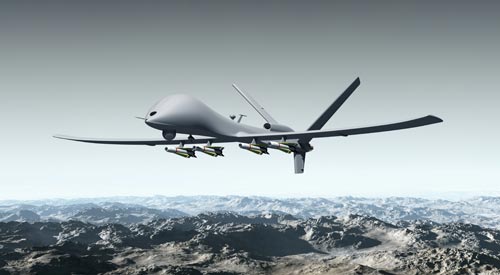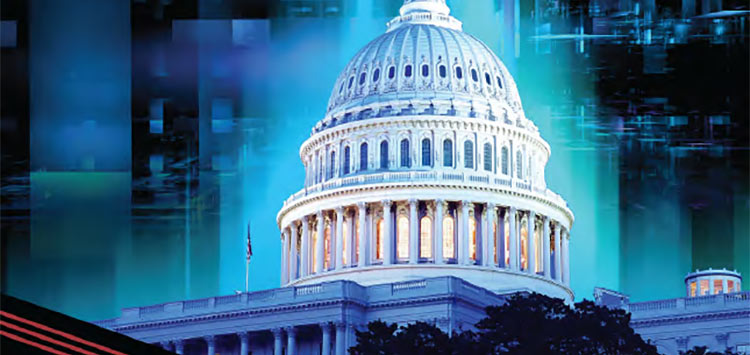-
Business
-

Policy & Business
-
-
Federal IT
-

Information Technology
-
-
State & Local
-

State & Local Government
-
-
Defense
-

Defense & Intelligence
-
-
Healthcare
-

Healthcare Policy & IT
-
-
Energy
-

Energy Policy & Technology
-
-
Education
-

Education Policy & Technology
-
Political scientists see the discipline's historical division across four subareas as hindering their ability to understand Trump's America
Inside Higher Ed: President Trump’s rise to power prompted numerous think pieces from political scientists about the virtues (or lack thereof) of political neutrality in the classroom. But beyond questions about teaching and personal opinion, political scientists are also asking how they should study political science today. Namely, they’re asking whether the discipline’s traditional structure -- semi-siloed subfields including American politics, comparative politics (everyone else), political theory and international relations -- works in the age of Trump.
“For those of us who have been studying this country, it’s been remarkably stable over time,” said Suzanne Mettler, the Clinton Rossiter Professor of Political Institutions at Cornell University and co-author of a new paper on Trumpism and democracy; the article is an outgrowth of a workshop Mettler, an Americanist, and colleagues held at Cornell in June to promote dialogue across political science subfields -- a central message of the new paper.
Top Stories
- CISA releases guide to help safeguard K-12 schools from cyber threats
- University of Ottawa’s Martin Bernier on continuous learning
- What Is ChatGPT and How Is It Used in Education?
- K12 Schools View Technology as a Guardrail for Good Digital Citizenship
- 5 ways our district streamlines edtech ecosystems
- 14 Technology Predictions for Higher Education in 2023 -- Campus Technology
- Dozens of US schools, universities move to ban TikTok
- How Can Schools Reduce the Risk of Cyberattacks?
- Districts Transform School Spaces into Labs, Arenas and Studios
- What's In, What's Out for Education Technology
- Texas Proposes Sharing Information Security Expertise Across Higher Ed and State Agencies -- Campus Technology
- Commerce Announces Over $18M in Digital Education Funding
- Rethinking your K-12 cloud strategy
- All That Ed Tech Schools Bought During the Pandemic Won’t Improve Equity. Here's Why
- How to Communicate Student Data Privacy Protections to Families More Effectively
- Ban the Cellphone Ban
i360Gov Newsletters
The most significant government policy, business, and technology news and analysis delivered to your inbox.
Subscribe NowTrending
- Mentoring tomorrow’s Black IT leaders
- 5 tips to build community-wide support for IT transformation
- Technology Is the Tool, Not the Teacher (Opinion)
- Every Student Needs 21st-Century Data-Literacy Skills
- 5 Big Technology Challenges Teachers and Administrators Will Face This School Year
- Districts Transform School Spaces into Labs, Arenas and Studios
- How Can Schools Reduce the Risk of Cyberattacks?
- What Are the Benefits of Digital Identity in the Metaverse?
Also in Education Policy & Technology
About
i360Gov is an intelligent network of websites and e-newsletters that provides government business, policy and technology leaders with a single destination for the most important news and analysis regarding their agency strategies and initiatives.
Contact Us
Telephone: 202.760.2280
Toll Free: 855.i360.Gov
Fax: 202.697.5045











